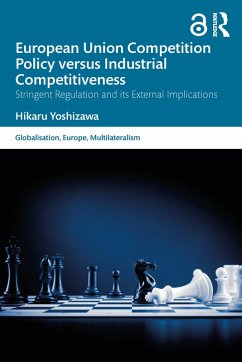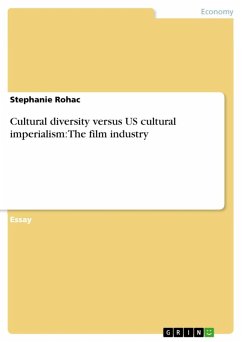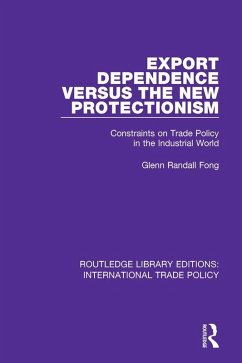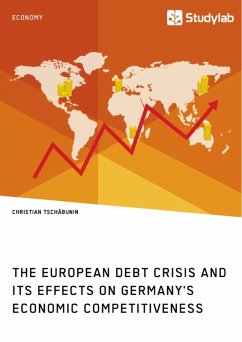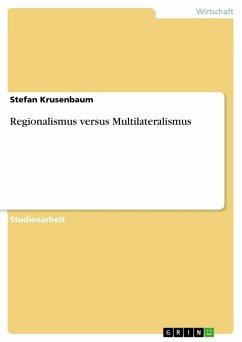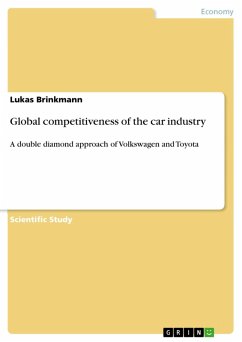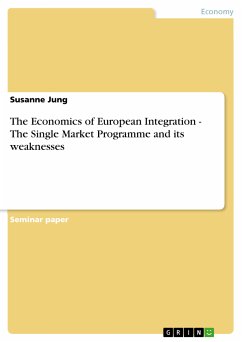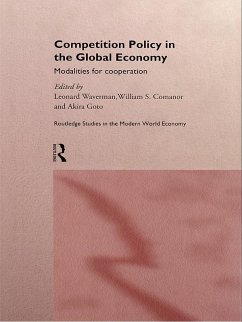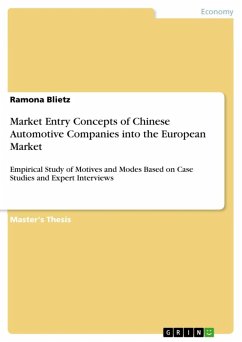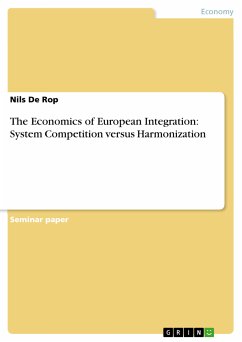
The Economics of European Integration: System Competition versus Harmonization (eBook, ePUB)

PAYBACK Punkte
0 °P sammeln!
Seminar paper from the year 2002 in the subject Economics - International Economic Relations, grade: 1,3 (A), University of Göttingen (Economics Seminar), course: European Integration and EU-Enlargement, language: English, abstract: The process of European Integration, especially the economic perspective of these fascinating developments is the main issue of this seminar paper. The decisive questions leading through the analysis are the following: which approaches to economic integration exist, which one of them has been, is and will be dominant in the respective European Integration process ...
Seminar paper from the year 2002 in the subject Economics - International Economic Relations, grade: 1,3 (A), University of Göttingen (Economics Seminar), course: European Integration and EU-Enlargement, language: English, abstract: The process of European Integration, especially the economic perspective of these fascinating developments is the main issue of this seminar paper. The decisive questions leading through the analysis are the following: which approaches to economic integration exist, which one of them has been, is and will be dominant in the respective European Integration process and whether the current framework is appropriate for the future, always in mind the further enlargement towards a European Union of 25 or even 27 member states. I structure my analysis into mainly three parts, namely the underling theory, an empirical analysis and an outlook for the future. The emphasis is clearly on the first two parts, which are based on an economical perspective of integration processes. I present the underlying theory of economic integration, namely the two approaches to it, System Competition and Harmonization at first. Afterwards, an overview of the process of European Integration is provided, always in mind the perspective of economic integration and therefore the ongoing battle of the two approaches to gain more importance in the process. While doing so, I analyse phases or stages in which one of these approaches has been increasingly dominant in the integration process and try to analyse why this special pattern has occurred. At the end of my paper, I combine the economic perspective to integration with a more general, but interesting concept to integration processes, which could help to overcome the increasing stagnation tendencies in European Integration that is one of the main findings of my earlier analysis. Although this Concept, named Differentiated Integration provides one with extensive measures to reform the integration process, I limit the perspective to mostly the changes and proposals with importance to economic integration as this is the core issue of this paper. Thus, the final presentation of reform proposals is less focused on how the European Union as a final Political Union could look like in the far future, but more on how to overcome stagnation tendencies and gain dynamic impulses again with more technically orientated middle-term actions.
Dieser Download kann aus rechtlichen Gründen nur mit Rechnungsadresse in A, B, BG, CY, CZ, D, DK, EW, E, FIN, F, GR, HR, H, IRL, I, LT, L, LR, M, NL, PL, P, R, S, SLO, SK ausgeliefert werden.




